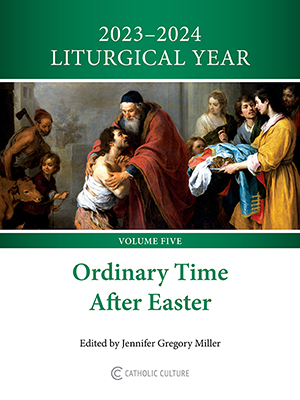a clash of cult and culture in Northern Ireland
By Phil Lawler ( bio - articles - email ) | Oct 20, 2009
In Northern Ireland, a Protestant cabinet minister has made some waves with his announcement that his conscience will not allow him to attend ceremonies in a Catholic church. His stand was assailed by Sinn Fein, the political party identified with Catholics (and in the past, with supporters of the IRA):
Free eBook:

|
| Free eBook: Liturgical Year 2023-2024, Vol. 5 |
The Sinn Fein motion called on the minister to do withdraw his statement that he will not attend a service in a Catholic church, to recognise that such a refusal to attend a Catholic church service from a minister has no place in an inclusive society, and that as a minister he has a duty to serve all sections of society.
As much as it may surprise some old friends, I have to side with the Orangeman on this issue. If he can be compelled to do something that violates his conscience, then a Catholic can, too. While Catholics do not object to attending the religious services of another faith, it takes very little imagination to see how the arguments offered by Sinn Fein could be used to the detriment of an honest Catholic politician.
Still there remains the question of how a man with such rigid religious views came to be-- of all things-- the minister of culture, in a government striving for reconciliation between Protestants and Catholics? Cult and culture are not easily separated; it was entirely predictable that religious issues would arise in his handling of that portfolio. Why was he offered that particular post? Why did he accept it?
Peace has come to Northern Ireland at last, after far too much hatred and bloodshed. But the differences in "cult" still run surprisingly deep.
All comments are moderated. To lighten our editing burden, only current donors are allowed to Sound Off. If you are a current donor, log in to see the comment form; otherwise please support our work, and Sound Off!
-
Posted by: garedawg -
May. 16, 2018 10:52 AM ET USA
As a member of a Byzantine-rite congregation, I've observed that men tend to be drawn more strongly to that liturgy than are women. Very often our services have more men present than women. When I've talked to couples who switched from a Roman Catholic or Protestant church to either an Eastern Catholic or an Orthodox church, usually it was the man who initiated the change. Perhaps that liturgy more closely reflects the masculine model of prayer?








